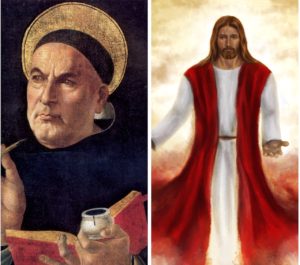

Weaving together quotes of a famous one and The Famous One
John Calvin said, “There is no worse screen to block out the Spirit than confidence in our intelligence.”
Solomon said it like this in Proverbs 3:5: “Trust in the Lord with all your heart and lean not on your own understanding.”
Smarts. Intelligence. These are all good things. Surely it is better to be with them than without them. But wherever we find ourselves on any scale of intelligence matters far less than the role we assign to it. The key to putting our intelligence to its best use, regardless of how we may measure it, is by properly answering the question, “What goes first?”
Intelligence Goes First
One thing we can all agree on (can’t we)? God is smarter than us. Here are my answers to a quick test. See if yours are similar:
| Has the intelligence to… | God | Me |
| Create billions of galaxies each containing billions of stars | Able | Not able |
| Create a planet perfectly suited for life | Yup | Nope |
| Program a perfect genetic code for all life on earth (DNA) | Done it | Still working on it |
| Divine a perfect plan and purpose for [insert your name here]’s life | Has it all under control | Still can’t quite figure out what it is though He’s told me what it is a hundred times (or more) by now |
When we put our intelligence first in line, we limit ourselves to a mere fraction of what is available to us. We screen out a far greater intelligence contained in the Holy Spirit. It’s like racing on a bicycle instead of driving a Formula One racecar. It also closes out an eternal perspective. Our intellect can only deal with the things of this world. If we were only living for this world that might be fine, but we must remember that we are created in God’s image, and thus our existence will extend into eternity. That which seems wise to the world is often, if not always, foolish from an eternal perspective. So… we must adopt a different answer to our question…
Spirit Goes First
When we allow the Spirit to be the primary guide for our thoughts and actions, we are able to approach things intelligently, eternally, gloriously, in a way that fits into God’s grand plan. If we attach our intellect, at whatever level we have it, to the Spirit as it moves us, then we fully leverage God’s wisdom and allow our intellect to be one of the tools He uses to achieve glorious things through us.
Have the Spirit First and the Bigger Picture
Let’s not overlook a fundamental parameter to the “Spirit Goes First” plan—you have to have the Spirit! We secure this awesome Holy Spirit through a personal relationship with God, made possible by His grace, through faith in Jesus Christ. Faith in Jesus has to happen first before we can put the Spirit first. Without Jesus, we only have our intelligence to work with. If you’re not sure you have the Spirit, check out For God So Loves You to see how you can make it so. Faith in Jesus not only secures God’s smarts, it’s much bigger than that. Faith saves you for His Kingdom for all eternity. The Spirit’s wisdom is only a small slice of the benefits of faith.

 “The King will reply, ‘Truly I tell you, whatever you did for one of the least of these brothers and sisters of mine, you did for me.’”
“The King will reply, ‘Truly I tell you, whatever you did for one of the least of these brothers and sisters of mine, you did for me.’” Weaving together quotes from a famous one and The Famous One
Weaving together quotes from a famous one and The Famous One
 “I pray that the eyes of your heart may be enlightened in order that you may know the hope to which he has called you, the riches of his glorious inheritance in his holy people”
“I pray that the eyes of your heart may be enlightened in order that you may know the hope to which he has called you, the riches of his glorious inheritance in his holy people”  Do not conform to the pattern of this world, but be transformed by the renewing of your mind. Then you will be able to test and approve what God’s will is—his good, pleasing and perfect will.”
Do not conform to the pattern of this world, but be transformed by the renewing of your mind. Then you will be able to test and approve what God’s will is—his good, pleasing and perfect will.” “I tell you, whoever publicly acknowledges me before others, the Son of Man will also acknowledge before the angels of God.”
“I tell you, whoever publicly acknowledges me before others, the Son of Man will also acknowledge before the angels of God.” The YouTruth in Numbers 6:24-26
The YouTruth in Numbers 6:24-26 The YouTruth in John 3:3
The YouTruth in John 3:3 The YouTruth in Luke 14: 13-14
The YouTruth in Luke 14: 13-14